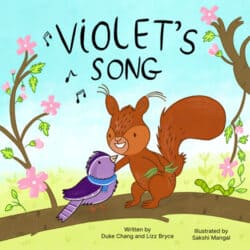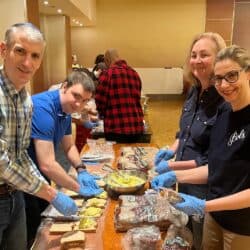The Foundation for Black Communities is encouraging philanthropy leaders to give more control to the communities they are trying to serve. Board co-chair Marlene Jennings says the sector needs to recognize the role it has played in underfunding Black communities, grant communities the money they need, and trust them to handle it.
Mariam Coulibaly needs $250,000 to open a new office in Ottawa so her non-profit Startop can reach Black francophone women entrepreneurs in Ontario – but it’s up to Black Canadians to decide if her organization gets the money. That’s because Coulibaly applied for the Black Ideas Grant (B.I.G.), a participatory grant provided by the Foundation for Black Communities (FFBC). Grant managers and foundation staff are not deciding who will receive the money: fellow B.I.G. applicants and other Black community members who applied to review applications will choose the successful organizations. With 250 people reviewing more than 2,000 funding applications over three weeks, B.I.G. is exploring the potential of trust-based philanthropy to transform communities waiting for an opportunity to invest in themselves.
“For Black Canadians to have their own self-determination and to be able to actually lead the solutions in their communities, we have to remove the barriers from an organization making those decisions,” says Leah Sanford, FFBC’s director of communications. “That is the biggest barrier. People are making decisions, not knowing what’s happening in the community, what the actual needs are in the community.”
For Black Canadians . . . to be able to lead the solutions in their communities, we have to remove the barriers from an organization making those decisions.
Leah Sanford, Foundation for Black Communities
In December 2023, FFBC announced B.I.G., a $9.1-million fund to invest in solution-oriented initiatives led by Canada’s Black communities. Employment and Social Development Canada’s Black-led Philanthropic Endowment Fund contributed $5.88 million, while the remaining funds were a combination of FFBC’s endowment and other anonymous funding sources. The B.I.G. grant can be awarded only to Black-led, Black-focused, and Black-serving organizations (also known as B3) based in Canada. Applicants can request money under three funding streams: core, catapult, and community capital.
The core stream awards up to $40,000, funding organizations’ activities related to operations, such as staffing and administrative costs.
The catapult stream awards $40,000 to $100,000 so organizations can fund new or existing approaches to improve Black communities’ socio-economic well-being, such as research, pilots, or evaluations.
The community capital stream awards up to $250,000 to scale programs, services, or commercial initiatives to advance Black communities’ socio-economic infrastructure. This stream is considered an investment for organizations that are – or could be – foundational to their communities and could lead to transformative change regionally and nationally.
What Black communities are asking for
Housing was a “number one theme,” according to Sanford, due to the influx of African migrants and asylum seekers Canada is experiencing.
Michelle Musindo, FFBC’s program manager, echoes that housing is a big concern for Black communities, on top of the increased cost of living. According to Musindo, there were many applications related to food security as well. She says she was excited to see programs supporting people with disabilities, 2SLGBTQIA+ community-related projects, and youth-based programs ranging from entrepreneurship to coding, literacy initiatives, and sports.
Coulibaly’s cause was Black women in business. She is the co-founder and managing director of Startop, which supports entrepreneurial women and their role in the social economy by providing solutions to promote and retain women in business and ensure the survival of feminist non-profits.
She wants to use the award money to launch a cohort training program out of Startop’s future Ottawa office over six months to establish a collective of Black francophone women in business. Startop is based in Montreal, but Coulibaly wants to expand into Ontario, where more than half of Canada’s total Black population lives.
When you want to break systemic barriers, you cannot do it by doing the same thing. You have to innovate.
Mariam Coulibaly, Startop
But B3 organizations have not just been asking for money. They want new ways to access money in the first place. Coulibaly, whose first language is French, says she appreciates how the B.I.G. application process is more accessible compared to other grant applications she’s completed. “When you want to break systemic barriers, you cannot do it by doing the same thing. You have to innovate, and that’s what I’ve liked the most from this experience,” she says. “They knew our difficulties to access the funds, [so] they managed to have funds for us.”
Coulibaly says FFBC also knew that long application questions were a disservice to organizations in need of grants. She says she enjoyed the B.I.G. application because the questions were straightforward and did not take up time she could spend working: “What is the project? What is the target? What have you done? Two or four documents, that’s it. Other [grant applications] – you have to fill a business plan, but a business plan is not free.”
FFBC also allowed organizations to submit oral applications. If potential applicants needed support, FFBC offered guidelines and applicant support documents, one-on-one support, and four drop-in webinar sessions, which were offered in French, American Sign Language, and langue des signes québécoise.
Musindo says their application measures were focused on establishing trust with organizations. “We know that when funds are held by Black communities, there’s excellence. There’s great programming that’s already happening,” she says. “There’s going to be amazing results because Black communities have been doing this work with so little funding already. So now we’re saying, ‘Okay, here is the actual funding you deserve.’”
Who gets a say
While Coulibaly was waiting for a decision on her application, she was reviewing other applications for the same grant. She is part of the community selection circles (CSC), the committees that selected the applicants who would become grant recipients. One CSC is made of fellow B.I.G. applicants; the other is represented by Black community members.
“Applicants’ voices are so important to the process,” Musindo says. “They’re the folks running programs. They know what their beneficiaries are looking for. They know what their beneficiaries need, so who better to provide feedback to other applicants?”
[Applicants] know what their beneficiaries need, so who better to provide feedback to other applicants?
Michelle Musindo, FFBC
To join the CSC, applicants and other members of the Black community nominated themselves through a survey that explored their personal lives and professional experiences. Musindo says FFBC wanted to ensure that they had members based all across Canada, people with and without grant-reviewing experience, people who have been beneficiaries of grant programs and those who haven’t had the opportunity, and folks of different ages.
Musindo lists some of the questions that shaped their CSC selection: “Who’s your community? What work do you do? What is your expertise? What are you interested in? What communities do you identity [with] or have you worked with in the past?”
Musindo says there are many different Black communities within the FFBC team, which is why they acknowledge and differentiate between Afro-Caribbean, African, African-Canadian, Afro-Latin, and Afro-Indigenous communities during the participatory process. Practically, that looked like offering B.I.G. application guides, FAQs, and applications in different languages on their website: French Somali, Yoruba, Amharic, Arabic, Tigrigna, and Spanish. “It was very intentional. Our Black community has so many other smaller communities in between them,” she says. “We want to make sure that we show up for them the way that they’ve been showing up for their community for years.”
According to Musindo, participatory grantmaking was a first-time experience for many CSC members, who were paid up to $450 to review up to 20 applications (an hourly rate of $22.50). She says some were unsure about participating in a grant-reviewing process because they were not familiar with evaluating applications for funds they were also hoping to receive.
B.I.G. was Coulibaly’s first grantmaking and participatory grantmaking experience. She said her background in business helped her assess whether the grant applications were realistic. Five of the applications she reviewed were from Quebec-based organizations. Coulibaly recognized some of the organizations’ applications from working within the Black charitable ecosystem in Quebec, which she said made decisions easier. “When you are on the ground, you relate with people. You can know the difficulties they have, and then you [make it] simple,” she says. “And the fact that I knew that it was some people of my community – this was innovation.”
Encouraging participation across the sector
The participatory process is not just connecting the ecosystem of Black charitable organizations, but providing an opportunity for Canada’s other philanthropic organizations to support Black communities.
Despite the $9.1 million, Black community groups are asking for – and need – much more.
According to Musindo, FFBC received more than $203-million worth of requests. She says that if their inaugural B.I.G received more than 2,000 requests, the philanthropic sector needs to look at the Black communities applying to organizations and question why they are not getting funded. This is the conversation Black philanthropic professionals had in 2020, with the Unfunded report revealing that Black-serving organizations received 0.7% of grants in 2017/2018.
How is the philanthropic sector also stepping up and supporting Black communities across the country?
Michelle Musindo
“FFBC cannot do this alone,” Musindo says. “How is the philanthropic sector also stepping up and supporting Black communities across the country?”
Marlene Jennings, who serves as co-chair of FFBC’s board, says the foundation has already begun discussing funding opportunities with other funding partners. “There’s a good number of those applications that we would have loved to have been able to fund because they were needed,” she says. “We were talking to our partners, saying, ‘We’re going to pull out those projects that we had to decline from your neck of the woods which address real issues and we’re going to share them with you, so you can pull together your network of foundations and fund them.’”
FFBC is a natural evolution of Black communities in Canada, taking our own destiny into our hands.
Marlene Jennings, FFBC
Jennings says that FFBC wants to encourage and establish networks between different regions. Encouraging these relationships began in the application stage by allowing unincorporated B3 groups to apply if they could confirm they had an incorporated partner organization to receive FFBC funds on their behalf. These partners did not have to be B3 organizations, allowing allies in the philanthropic sector to support Black communities seeking funding.
“FFBC is needed. And I think that it’s a natural evolution of Black communities in Canada, taking our own destiny into our hands,” Jennings says. “But in doing so, ensuring that all of the other players who have contributed to our displacement, who’ve contributed to our impoverishment, the barriers we face – that they have to recognize the role that they’ve played by underfunding Black communities, and to start funding us, but to give us the money. We’ll handle it.”


